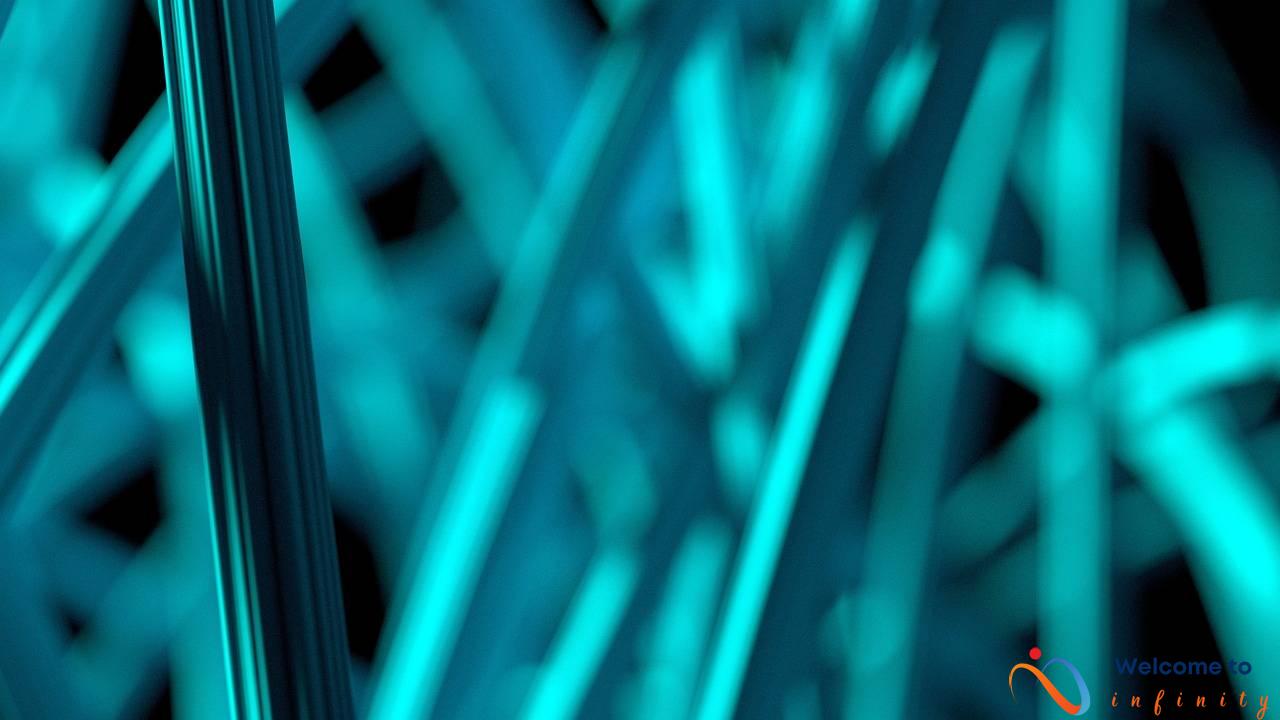As the marketing industry continues to evolve, the use of AI has become central to understanding customer behavior. AI can gather vast amounts of customer data and provide deep insights on their behavior and preferences. This data can then be leveraged to personalize marketing campaigns, tailor messages to specific customer segments, and improve customer loyalty and engagement levels.
With the help of AI-driven tools, companies can deliver personalized content and product recommendations to customers based on their preferences and behavior. Chatbots and voice assistants can also be used to offer around-the-clock customer service, reducing response times and increasing customer satisfaction levels.
AI's role in targeting strategies has also been significant. With the ability to analyze customer data and create predictive models, marketers can identify specific attributes that make customers more likely to engage with their products or services. This helps them to optimize their marketing campaigns for better results.
using AI, marketers can also use lookalike modeling to create models of customers who are similar to existing customers. This helps them to achieve better targeting by focusing on a specific audience more likely to engage with their offers.
Overall, AI's potential to improve customer engagement and targeting is vast. As this technology continues to evolve, businesses that embrace AI-driven solutions will be better positioned to create truly personalized experiences for their customers and drive increased revenue.
What is AI?
Artificial intelligence (AI) is a rapidly growing field in computer science where machines are designed to perform tasks that usually require human intelligence. These tasks include visual perception, speech recognition, decision-making, and natural language processing. AI is driven by computer algorithms and collects data through machine learning to improve overall performance and efficiency.
AI technology has the ability to continually learn and evolve, making it more effective at analyzing a variety of data sets and identifying patterns. By using this technology, businesses can better understand and predict consumer behavior, improve customer engagement and increase sales.
One distinct feature of AI is its ability to analyze and interpret complex data in real-time, allowing companies to make informed decisions more quickly. The use of AI in marketing provides significant benefits for businesses, including increased efficiency, personalization, and precision. With AI-powered tools, businesses can optimize marketing campaigns, better target specific audiences with personalized content, and deliver a more satisfying customer experience.
- Visual perception: AI technology can analyze visual data and recognize patterns in images and video, such as faces, objects, or environments. This makes it possible to identify products in retail settings or analyze medical images to diagnose diseases more effectively.
- Speech recognition: Using AI, computers can transcribe human speech, recognize voice commands, and convert text to speech. This is particularly useful for virtual assistants and customer service bots.
- Decision-making: AI can assist with decision-making by analyzing complex data sets and providing optimal solutions. This is useful for tasks such as managing financial portfolios, predicting market trends, and optimizing supply chain management.
- Natural language processing: AI has the ability to interpret human language, respond to questions, and generate text. This is useful for chatbots, virtual assistants, and other customer service applications.
The use of AI technology in marketing is rapidly growing, leading to improvements in customer engagement and targeting. As the field continues to evolve, AI is expected to become increasingly important in understanding and predicting customer behavior, and driving business growth as a result.
AI and Customer Engagement
In today's hypercompetitive markets, customer engagement is a key factor for business success. AI is a powerful tool that enables marketers to understand the behavior and preferences of their customers better. With vast amounts of data available, AI can analyze customer interactions, preferences, and other relevant information to create a more personalized marketing experience for customers. This enhanced personalization results in higher levels of engagement and loyalty.
With AI-powered tools, businesses can tailor their messages to specific customer segments. By understanding customer behavior and preferences, companies can deploy highly targeted marketing campaigns that optimize the use of resources and generate higher revenue. Additionally, AI can leverage customer preferences and create tailored experiences that customers are more likely to engage with, resulting in increased loyalty.
AI-powered chatbots and voice assistants are becoming more common, enabling businesses to offer fast, efficient customer service around the clock. Customers can interact with these bots in natural language, and AI algorithms can learn from these interactions, improving the customer experience over time. These tools contribute to enhancing customer loyalty and engagement, creating a more positive experience overall.
In conclusion, AI offers unparalleled opportunities for businesses to understand their customers better. By analyzing vast amounts of data, companies can create personalized experiences, engage with specific customer segments, and enhance customer loyalty. It's clear that incorporating AI-powered tools into one's marketing strategy is no longer a luxury; it's a necessity for success.
Personalization
One of the key benefits of AI in marketing is its ability to deliver personalized content and product recommendations to customers. By analyzing vast amounts of customer data, AI-driven tools can identify individual preferences and behavior patterns, allowing companies to deliver more relevant and targeted marketing messages. Personalization leads to a more engaging and customized experience, ultimately driving higher engagement levels and customer loyalty.
Moreover, personalized marketing campaigns can be tailored to specific customer segments, such as age groups, demographics, and geographic locations. This enables companies to reach their audiences more effectively, and create messages that resonate with them. By addressing the unique needs and interests of each customer, marketers can build deeper relationships with their audience and foster greater brand loyalty.
AI-based personalization strategies can also help reduce customer churn rates. When customers feel that a brand understands their specific needs and delivers relevant content, they are more likely to stay engaged with that brand over time. By demonstrating an ongoing commitment to customer satisfaction, companies can build stronger and more profitable relationships with their audience.
In summary, by leveraging AI to deliver personalized content and product recommendations, companies can enhance customer engagement and build long-term brand loyalty. Personalization drives customer satisfaction and retention, resulting in increased sales, conversions, and revenue for businesses.
Voice assistants and chatbots
Voice assistants and chatbots are revolutionizing the customer service industry. They offer a fast and efficient way for customers to interact with businesses through natural language. With the help of AI, chatbots can analyze vast amounts of customer data to identify trends and patterns in customer behavior, providing more personalized responses.
Chatbots are available 24/7, providing customers with instant answers to their queries and reducing response times. They can offer personalized product recommendations and help customers complete transactions quickly, resulting in higher conversion rates.
Moreover, voice assistants like Alexa and Siri allow customers to engage with businesses using voice commands. Customers can order products, get information about services, track orders, and make payments using voice search technology. This makes the customer service experience faster and more convenient and allows businesses to provide a seamless omnichannel experience.
AI-powered chatbots and voice assistants are not only improving customer satisfaction, but they are also driving significant cost savings for businesses. By automating routine customer service tasks, businesses can reduce the need for human support agents, resulting in lower labor costs and increased productivity.
AI and Targeting
Marketing is all about understanding customer behavior and providing them with personalized experiences. With the help of AI, marketers can now gather insights on customer behavior and preferences, which can enhance customer engagement and loyalty. One of the most significant advantages of AI in marketing is its ability to help drive more effective targeting strategies.
AI can analyze vast amounts of data to predict which customers are most likely to engage with a particular campaign or make a purchase. By creating predictive models, AI can identify specific attributes that make customers more likely to respond to a particular message or product. This helps marketers optimize their campaigns for better results and increases their return on investment (ROI).
Using lookalike modeling, marketers can create models of customers who are likely to be interested in their products or services based on similarities to existing customers. This helps achieve better targeting by focusing on a specific audience more likely to engage with their offers. By using AI for behavioral targeting, marketers can analyze customer data to understand their needs and create highly targeted campaigns that resonate with their customers.
AI can revolutionize the way marketers approach customer engagement and targeting. By analyzing customer data and predicting future trends, AI can help businesses connect with customers on a more personal level and create more effective marketing strategies. As technology continues to evolve, AI will undoubtedly play an increasingly important role in marketing.
Behavioral targeting
Behavioral targeting is a marketing strategy that uses data to predict the behavior and preferences of customers. With the help of AI, marketers can analyze customer data to create predictive models and identify the specific attributes that make customers more likely to engage with a particular message or product. By using this approach, marketers can optimize their campaigns for better results.
One of the benefits of behavioral targeting is the ability to deliver personalized messages and product recommendations. By understanding the behavior and preferences of a specific customer group, marketers can create tailored campaigns that resonate with their target audience. This results in higher engagement levels and better ROI.
AI-driven behavioral targeting can also help identify opportunities for cross-selling and up-selling. By analyzing customer data, marketers can determine which products or services are most relevant to specific customer segments, and offer them targeted upsell recommendations. This approach can boost sales and improve customer loyalty.
Overall, behavioral targeting is a powerful marketing strategy that allows marketers to optimize their campaigns and improve engagement levels. By using AI to analyze customer data and identify specific attributes that make customers more likely to engage with a message or product, marketers can deliver personalized messages and product recommendations that resonate with their target audience. This results in better ROI and higher customer satisfaction levels.
Lookalike modeling
Lookalike modeling is a powerful tool that can benefit businesses in many ways. With AI technology, marketers can create a model of customers who are likely to be interested in their products or services. The model is created based on similarities to existing customers, such as demographics, lifestyle, interests, and behavior. This enables businesses to achieve better targeting by focusing their efforts on a specific audience more likely to engage with their offers.
Marketers can use lookalike modeling to expand their audience reach by targeting people who have similar attributes to their existing customers. For instance, if a business has a customer base with a high affinity for outdoor activities, they can use AI to model people who share that interest. Then, they can target this lookalike audience with relevant ads, promotions, and content, increasing their chances of success.
Moreover, by identifying the key attributes that make customers more likely to engage with their offering, businesses can optimize their campaigns for maximum impact. By fine-tuning their targeting strategies, they can reduce wasteful ad spend and improve their ROI. This not only saves them money but also helps them achieve their marketing objectives more efficiently.
In summary, lookalike modeling is a valuable technique that allows businesses to leverage AI technology for better customer targeting, engagement, and ROI. By using this approach, they can identify new opportunities, expand their customer base, and increase the effectiveness of their marketing campaigns.












